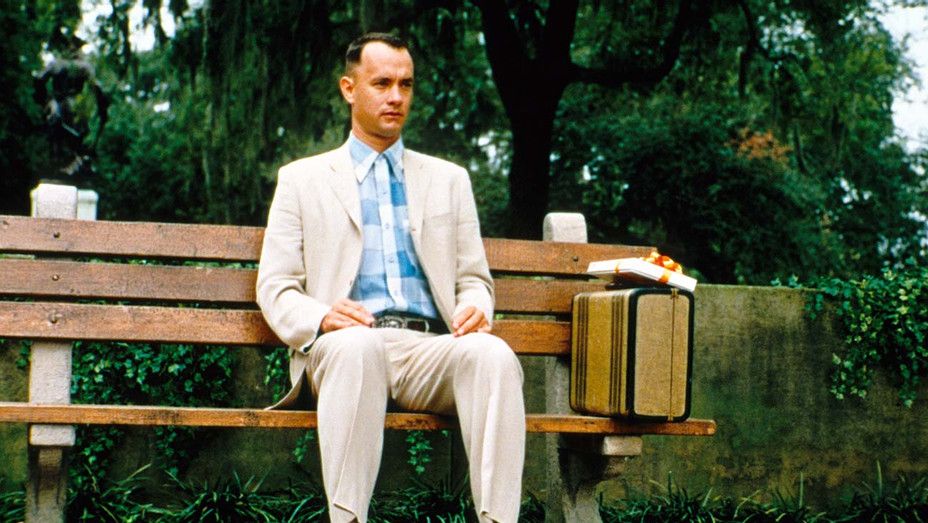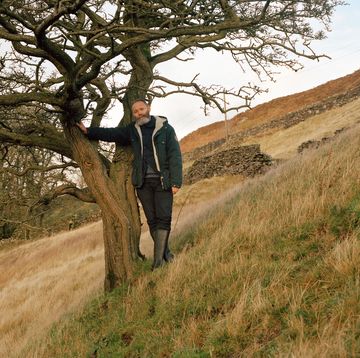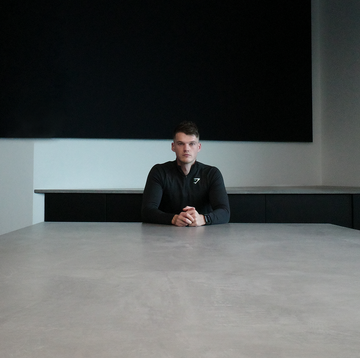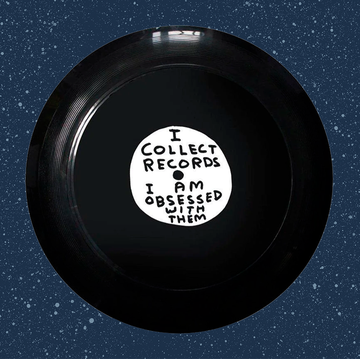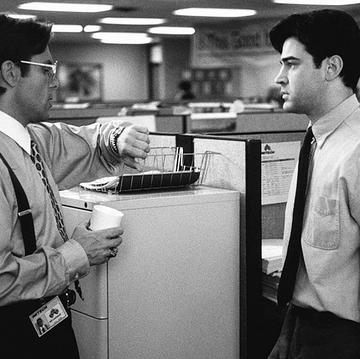The moment I realised that I might have a friend problem came when my children suggested that I needed to get out a bit more and that they would organise me a “play date”. But who to invite? My four-year-old daughter decided that it should be Patrick and Stanley. Both good choices. Both good guys. But one issue is that Patrick lives 400 miles away, in a different country. Another is that Stanley is also four years old.
I’ve never had a ton of friends, but I’ve always had a smattering. These have tended to be more superficial than deep relationships. I haven’t had a “best” friend since I was eight, when I fell out with my buddy Ben over a Panini sticker album that we were filling jointly but I didn’t — and still don’t, to be frank — feel he was pulling his weight on. I’ve never been asked to be a best man or a godparent, which is a bit sad when you think about it, but also great, because those two things have always seemed like hard work and, in the case of godparenting, a nepotistic Trojan horse to get their kid an internship one day (and if I’m going to use cynical nepotism to get any kid a job, it’s going to be my own, thanks).
Anyhow, Covid was in full swing, and I wasn’t going on a play date with Patrick or Stanley —or anyone really. But it did start me thinking: where had I gone wrong? Where do so many middle-aged men go wrong? Because I know I’m not alone here (except in the sense that I am).
Friendships in my twenties and thirties were easy: there were housemates, drinks after work whenever you felt like it, every weekend was someone’s birthday party. I had so much spare time that I used to go to art galleries and watch test match cricket. Then, in my late thirties, kids turned up. It’s fashionable to blame your children for all of your problems, and I think I have a decent case with my career stasis and the softness in my upper chest. The drop-off in friends might be harder to pin on them, though. As you get older, genuine effort is now required to nurture and nourish these relationships, and at 9.30pm, after work and having restored the house to order to a condition where it looks like it’s had only a light burgling, I’d rather watch Nathan For You. I’ve outsourced my #bantz to social media (strictly voyeuristically, of course). The only parties I go to these days have a dead-eyed drama student pretending to be Harry Potter.
You don’t need to dig very deep into the science to realise that letting real-world friendships lapse might just be the most ruinous thing we can do to ourselves. That’s not an exaggeration: the size and vitality of our social networks are the best predictor of how likely we are to die early or get divorced or recover from an operation. People who are socially isolated experience, by some estimates, a health downturn equivalent to smoking 15 cigarettes a day. Obesity, inactivity — studies show that none of these things is as self-destructive as not having friends.
The don in this field is Robin Dunbar, an evolutionary psychologist at the University of Oxford. “Dunbar’s number” posits that the average person will have around 150 friends, give or take: these are people who might be invited to our weddings or attend our funeral. Breaking this down, we typically have one to two special friends, five intimate friends, 15 best friends and 50 good friends. Dunbar recommends that in order to sustain these bonds, we should be in contact with our closest friends — either IRL or electronically — every other day. The next five pals can be maintained with weekly catch-ups; the next 15 should be seen once a month, the next 50 once every six months. Meanwhile, an annual MOT should be enough to keep the remaining 70-odd wedding-and-funeral friends ticking over.
Whoa there, Dunbar! Who talks to their friends every other day? Dunbar would probably respond: well, people who are happier and healthier than you; people who don’t get divorced; who pull through life-threatening operations. “Dunbar’s number” has been used to explain why elite SAS “patrols” consist of four men and why companies in the British Army are made up of no more than 120 troops. Malcolm Gladwell has eulogised the progressive, Dunbar-inspired spirit of the hi-tech adventure materials company Gore, which only allocates 150 parking spaces for each of its buildings. When these are full, Gore just constructs a new building.
Maybe I could learn something. I decided to “interview” one of my oldest friends about our relationship. I wanted an appraisal like the ones I desperately try to avoid at work: What did I do well? Are there areas that I could improve? When I called him, I realised we hadn’t spoken on the phone for four months; I hadn’t seen him in person since before the pandemic. A pretty damning start.
The next morning I received 1,000 words of feedback from him, via email. It wasn’t an easy read: the main takeaways were that I could be “aloof”, and that on nights out I had a tendency to look “bored” or “uncomfortable”. He recalled in detail an occasion 20 years ago when I’d loaned him a pair of salopettes for a skiing holiday, and then been pissy with him for months after he’d returned them with a broken zip. (A tough break I know, but don’t worry, I pulled through.)
One thing I was reminded of from my “interview”, though: however dysfunctional my behaviour in the past, friends are duty-bound to give you another shot. I’m not ready to go full Dunbar, but a catch-up every fortnight sounds doable and maybe not even unpleasant. Besides, the alternatives of solitude and ill health are pretty bleak. But first things first: let’s get Covid done with and when the dust settles, the lads and I are going on the bender to end all benders. I’ve just got to clear it with Stanley’s mum.
Like this article? Sign up to our newsletter to get more delivered straight to your inbox
